Chief Andre Sayles on Beloit police and immigration status
By Frederica Freyberg | Here & Now
January 16, 2025 • South Central Region
Beloit Police Chief Andre Sayles discusses policing practices toward undocumented immigrants as lawmakers pursue legislation requiring more detentions and the Trump administration plans deportations.
VIDEO TRANSCRIPT
Frederica Freyberg:
A bill in Washington would mandate immigration officers arrest and detain immigrants in the country illegally who are suspected of minor theft of $100 dollars or more. In Beloit, where the U.S. Census estimates ten percent of the population to be foreign-born, and twenty percent to be Hispanic, the police chief wrote an open letter to the city's 36,000 residents saying officers do not seek out people who are undocumented but consider immigration status only when a serious crime has been committed impacting public safety. The chief's social media post has gone viral — with strong feelings on both sides.
We sat down with Chief Andre Sayles and started by asking his reaction to the legislation.
So Chief, I wanted to start out by asking what your reaction is to that federal bill in Congress that mandates detention of undocumented immigrants charged with such things as even shoplifting?
Chief Andre Sayles:
It's one of those things where you have to really try to dive into it, and wanting to look and learn more about what is the actual goal of the bill. When you're looking at some of those minor crimes, it's one of those things where when people are arrested for minor crimes, what are we doing? We're overpopulating the jails. And some of those offenses, especially with our illegal immigrants as they say, are those things where we're holding people in jail for minor offenses to where we can also counsel them, talk to 'em about it, and then release them instead of holding them in spaces where our violent criminals need to be?
Frederica Freyberg:
Or holding them in spaces and then handing them over to ICE.
Chief Andre Sayles:
Yes.
Frederica Freyberg:
As a result of that kind of infraction. What do you think of that?
Chief Andre Sayles:
I think one of the biggest thing is we are adding more work to an already stressful job, a job that provides — here in the city of Beloit, we take roughly 57,000 calls a year, and that's over 1,000 calls a week for our police officers, over 100-something calls a day. When we're doing that, we're going to put more strain on our already strained law enforcement to now stay in these facilities with individuals to hold for ICE instead of ICE giving guidance and saying, "We will look at these certain crimes and we will be responsible for it." You have federal government, state government and local government, and we're putting a lot more work on your local government to do, I believe, a job that should be on the federal side.
Frederica Freyberg:
Well, additionally, how does that legislation square with your community policing philosophy?
Chief Andre Sayles:
It aligns with it to some point, but at the same time, we want to be good stewards of the people of Beloit, our community members here in the city of Beloit. So it's going to put that strain between our community members and the police department. We've worked diligently to bring down that strain and to be inclusive to all and to make sure that we're working for everyone, giving everyone a voice and an opportunity to have a relationship with our police department, to talk with our police department. And if we fully dive into that, we are going to remove a great deal of people here in the city of Beloit.
Frederica Freyberg:
When will your officers cooperate with ICE?
Chief Andre Sayles:
We will cooperate when we get further guidance, when there are violent felons arrested. In those situations, we will call ICE, we will talk to them, say, "Hey, this is what we have. What are our next steps?" if ICE were to come here and do a project, they typically call 'em a roundup. What are we looking for? Who are we looking for? What have they done that meets that felony threshold? And how can we be of assistance of that? We're not saying that we don't want to be partners with ICE, we're just saying we need further guidance, we need further understanding, and we're also going to need training.
Frederica Freyberg:
What is the bright line of when your officers would not cooperate with ICE?
Chief Andre Sayles:
I would think, I would say, it's going to be when those misdemeanor arrests are made or identified. Not saying that we wouldn't cooperate, but we will look to pass it on to ICE instead of our local law enforcement being involved in that. Because once again, we have to make sure that we're following the guidelines and the laws as well, and making sure that I don't put my police officers in a situation where they're violating people's natural-born rights at some point.
Frederica Freyberg:
A moment ago, you said something like, if your department were to engage in those kinds of ways, that you'd be removing a lot of people. Tell me about that.
Chief Andre Sayles:
Yes. So when you look at it, what is the number of immigrants in the United States? No one really knows. I've seen a number where it's 7 million. I've seen a number where it's 14 million, and I can pretty much say there probably are some undocumented individuals in the city of Beloit. But we've worked very hard to make sure that we are treating everyone in our community the same, regardless of their immigration status, 'cause we want to make sure we're not having victims continue to be victimized in the city of Beloit. Because if they don't come to us and tell us who's victimizing them, how can we make those arrests? And if they're scared to talk to us, people are going to continue to victimize them and continue to put a negative light on the city of Beloit.
Frederica Freyberg:
So you wrote an open letter to residents in Beloit this month on this issue. Why did you do that?
Chief Andre Sayles:
I thought as the leader of our police department and the leader of enforcing laws, I think everyone in our community needed to hear from me, to hear our stance on it, and to understand that we won't be going out and just randomly knocking on doors to say, "We heard that this person in the home may be illegal, we need to check your immigration status." Once again, that's going to add more work to our officers. That's going to prevent us from doing some of the things that we've done to build a better Beloit as far as making sure our roadways are safe, making sure that we are being partners of our students in the community of Beloit, 'cause they are our future, making sure that we are handling the violent crime that Beloit has had a history of known for. We are a city that went from having over 100 confirmed shootings in this city to where we're in the twenties now. And that is the hard work that the men and women of the Beloit Police Department has done with the help of our community members. So if we tarnish that relationship, we're going to go back to those days of "Don't go to Beloit."
Frederica Freyberg:
What has been the reaction from the community?
Chief Andre Sayles:
The people that I know that live in the city of Beloit has had a positive reaction to the message. They appreciate me being transparent, explaining what we're going to do as a police department, and how we're going to continue to cooperate with our community members. But I think a lot of it has been probably a lot of people that's not from the city of Beloit weighing in on some things that I would just say they probably really didn't understand or they took bits and pieces of that message and created a bigger message.
Frederica Freyberg:
And so you're suggesting that some of those people, most likely from outside the city, have been talking about deporting illegal immigrants or undocumented immigrants and that your message does not hold to that?
Chief Andre Sayles:
Yes.
Frederica Freyberg:
And how do you feel about that?
Chief Andre Sayles:
Everybody's entitled to an opinion, but it's my job to look at some of those opinions and see how it makes Beloit better or worse. My job is to sift through that and to make sure we're going to continue to put our best foot forward as a police department, and once again, make sure we're inclusive to all.
Frederica Freyberg:
What has been the reaction on the part of immigrants in your city?
Chief Andre Sayles:
I really haven't had too many conversations, but I did speak to one of our Hispanic population leaders in the city of Beloit, and she was very appreciative of the message that we put out, and understood why I put that message out, and understood that by me putting that message out, it relieved a little bit of stress from our Hispanic population in the city of Beloit. It's unfortunate that it seems as directly pointed only at the Hispanic population. But when you look at immigration, you have to look at all of the world. You know, we have people from China that may be illegal immigrants, El Salvador, you have people from the Philippines, and things of that nature. So I think the collective messages is all that may be illegal immigrants don't have to worry about us just knocking on their door, checking their immigration status. If we get to a point to where they're involved in a serious crime, that may come up, but we're not just going to go out and ask for their immigration status.
Frederica Freyberg:
So you said that you're waiting for guidance...
Chief Andre Sayles:
Yes.
Frederica Freyberg:
...on all of this. And yet, what are your concerns given what has been roiling around in the headlines?
Chief Andre Sayles:
No concerns as of yet. I'm a person that likes to sit back and wait and watch and look and get my own facts from documents that's provided for local law enforcement. If I have concerns out of that, then express those concerns to the person that may have sent it to us from the federal government and say, "These are the things that we think needs to change as a local law enforcement agency, or can you provide further guidance on what you're saying in these certain situations?"
Frederica Freyberg:
If the guidance and the laws say that you do in fact have to interact with the immigrant population in this city by way of going door-to-door and asking for their documentation, you will uphold the law, I assume?
Chief Andre Sayles:
Yes, most definitely.
Frederica Freyberg:
Regardless of what that feels like from a community policing standpoint.
Chief Andre Sayles:
Yes, we will follow those rules. But once again, we're, I'm going to make sure we are very detailed in our response to ICE or the federal government, to make sure that our officers are not going to be held accountable for violating people's natural-born rights that may be legal citizens of the city of Beloit but someone assumes that they're not. So we want to make sure that we are doing things best practice and making sure that we're getting the guidance from the federal government to make sure that we are upholding everyone's natural-born rights.
Frederica Freyberg:
Republican Assembly Speaker Robin Vos has reportedly said that he plans to introduce legislation that would compel local police agencies to cooperate with ICE. What's your response to that?
Chief Andre Sayles:
Once again, it's one of those things where we have to look at it, go through the message that's being sent out. What is that Legislature saying? What does those laws look like and what relief or things they're going to give us to make sure that we're trained properly and understand that we still have a community as a whole that we have to take care of, and they're adding additional work to an already strained profession?
Frederica Freyberg:
Is there anything you want to add on this?
Chief Andre Sayles:
No, I think the biggest thing is that regardless of what comes out, we're going to do the best thing that we have to do for the city of Beloit. We have no problem working with our federal partners. We have no problems working with anyone in the state, the local municipalities or on the federal side. Our thing is we want to make sure that we are providing everyone an opportunity to feel safe in this community of Beloit, and to make sure that the victims are not continued to be victims of crimes that they refuse to report because they feel that we're going to check their illegal or their immigration status before we make a case against the person that they're called on.
Frederica Freyberg:
Chief, thanks very much.
Chief Andre Sayles:
Thank you for allowing Beloit Police Department to get our message out. Thank you.
 Passport
Passport




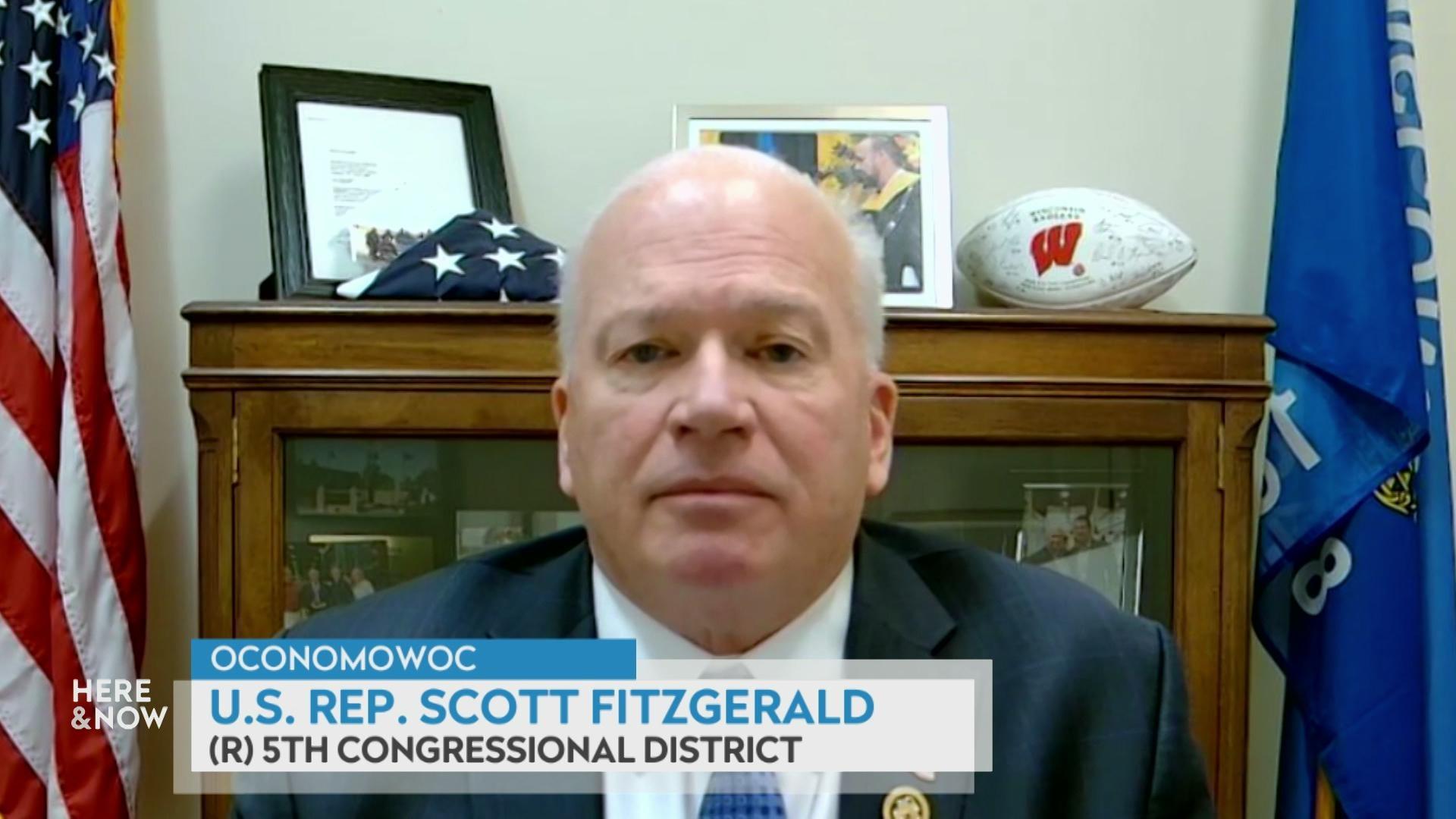

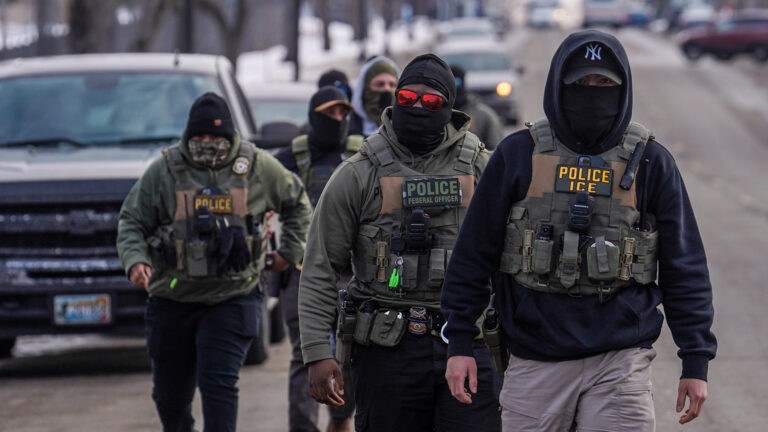
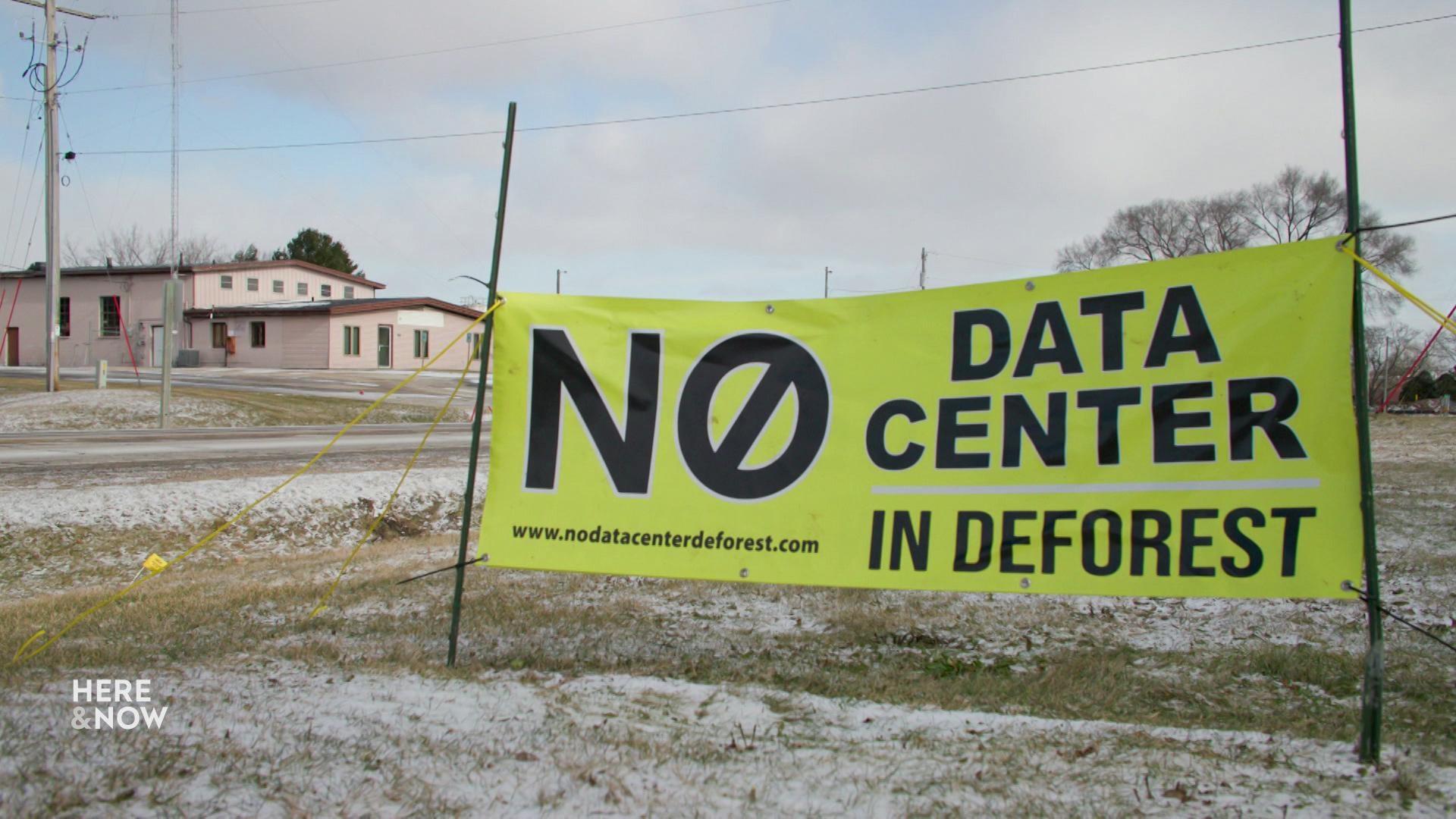
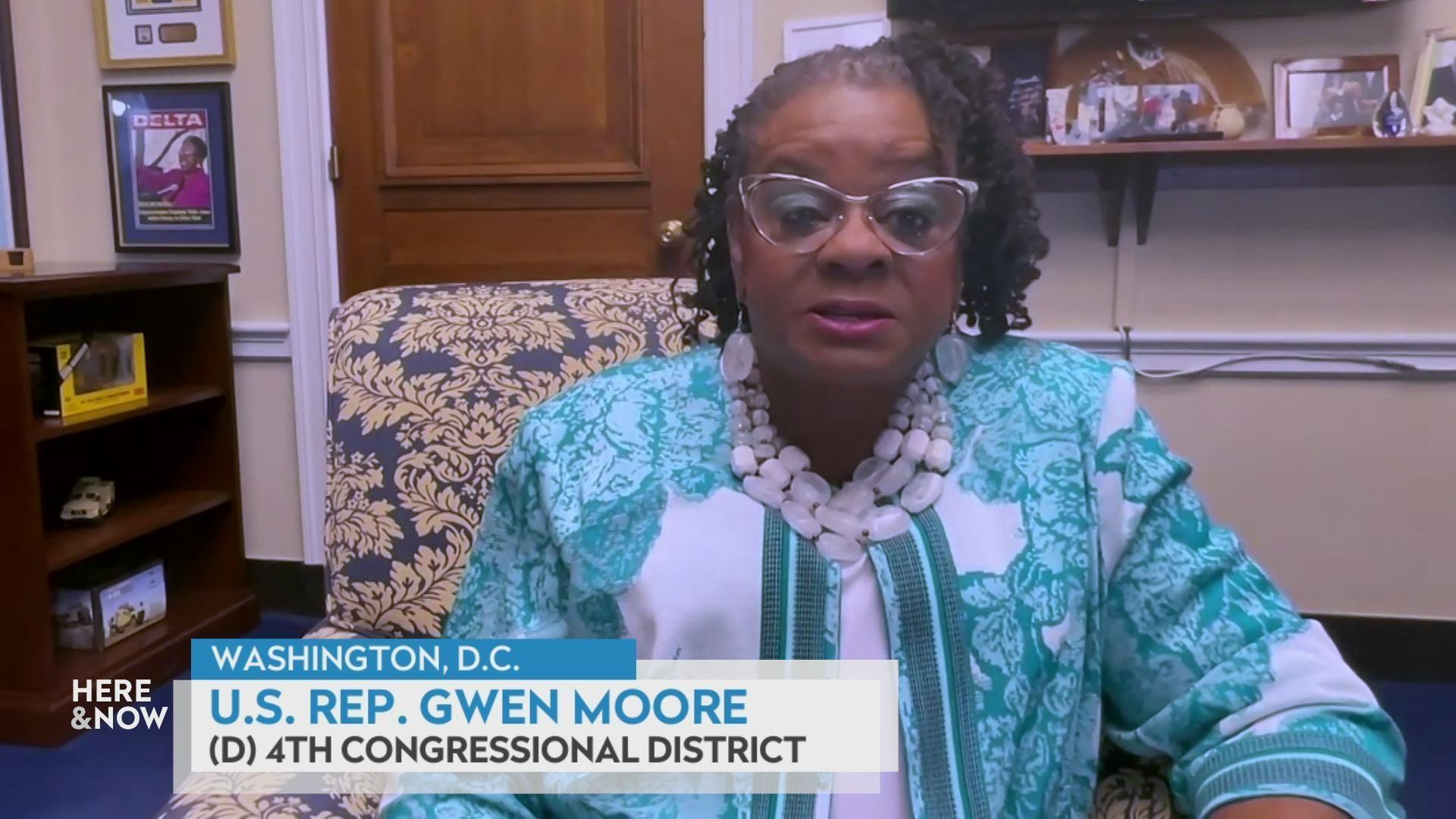
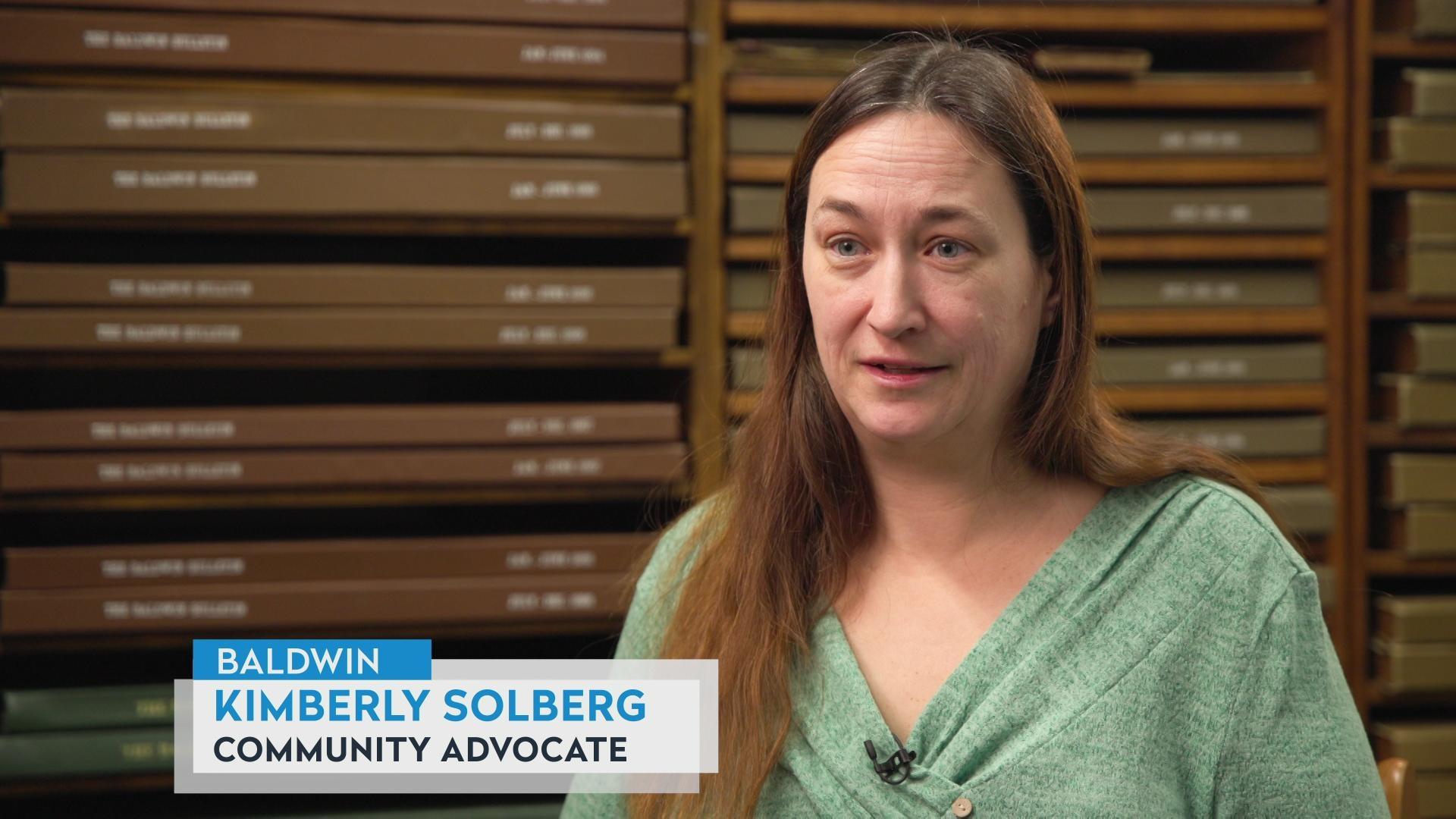

Follow Us